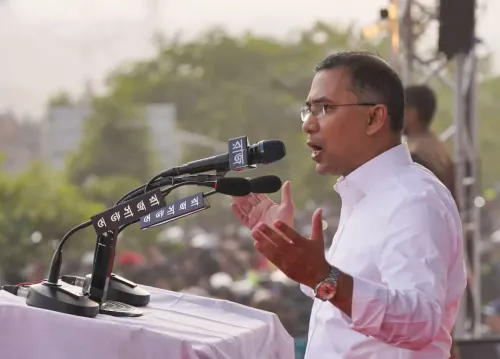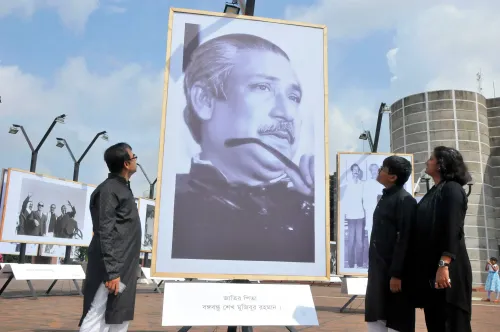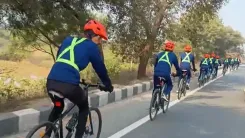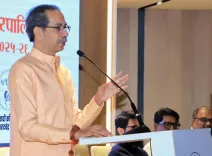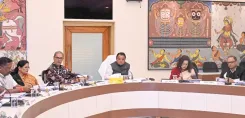Did Cambodia Breach the Ceasefire Agreement?

Synopsis
Key Takeaways
- Cambodia denies ceasefire violations.
- Thai army claims of attacks dismissed.
- Leaders agree to ceasefire for peace.
- UN supports peaceful resolution efforts.
- Military commanders to ensure compliance.
Phnom Penh, July 29 (NationPress) The Cambodian Ministry of National Defence has firmly dismissed allegations made by the Thai army, which accused Cambodia of launching attacks on Thailand just hours after a ceasefire came into effect.
In a press briefing, Lieutenant General Maly Socheata, the spokesperson for the Cambodian Ministry of National Defence, stated, "We categorically reject the claims made by the Thai army spokesperson regarding fighting and violations of the ceasefire agreement." She emphasized that the Cambodian armed forces have adhered strictly to the ceasefire that began at midnight on Monday, according to Xinhua news agency.
The acting Prime Minister of Thailand, Phumtham Wechayachai, suggested that minor skirmishes following the ceasefire could be attributed to undisciplined Cambodian troops, but reassured that the situation is now under control.
Earlier, the Thai military declared that Cambodia had breached the ceasefire, although they are still engaging in discussions to facilitate communication between frontline commanders from both nations.
On the same day, Lieutenant General Maly Socheata confirmed that hostilities over disputed border territories had ceased following the leaders' agreement to a ceasefire.
According to Winthai Suvaree, a spokesperson for the Thai army, a ceasefire was promptly established along the Thai-Cambodian border at the onset of the agreement.
He expressed disappointment that, despite the ceasefire taking effect, the Thai side detected ongoing armed assaults from Cambodian forces into Thai territory.
Following an earlier announcement by the Thai Army, it was noted that after the ceasefire commenced at midnight, there were reports of harassment from the Cambodian side, leading to renewed gunfire that persisted into Tuesday morning. Additional confrontations were also reported until 5:30 a.m. local time on Tuesday.
In the early hours of Tuesday, the Thai Army confirmed via social platforms that a ceasefire was in place across all areas along the Thai-Cambodian border.
Lieutenant General Socheata reiterated that the clashes between Cambodian and Thai forces had concluded after the leaders of both nations agreed to a ceasefire, stating, "As a positive outcome, there have been no further exchanges of gunfire in any military regions." She also mentioned that regional military commanders would convene informally to ensure effective ceasefire implementation.
The situation along the Cambodia-Thailand border has stabilized since the ceasefire took effect at midnight on Monday, as reported by Cambodian Prime Minister Hun Manet.
In a statement on his official social media, Hun Manet remarked, "The frontline has calmed down following the ceasefire that commenced at midnight, reflecting the spirit of the agreement reached between Cambodia and Thailand at a special meeting in Malaysia."
Leaders from both nations agreed to the ceasefire starting at midnight on Monday, as announced by Malaysian Prime Minister Anwar Ibrahim following a meeting he hosted.
Earlier on Monday, following the ceasefire declaration, UN Secretary-General Antonio Guterres welcomed the move as a positive step towards reducing current hostilities and alleviating tensions.
Guterres urged both nations to fully honor the agreement and foster conditions conducive to resolving long-standing issues and achieving enduring peace, as stated by Farhan Haq, the deputy spokesperson for the UN chief.
The Secretary-General also commended Malaysia, the current ASEAN Chair, along with the United States and China, for their dedicated efforts toward a peaceful resolution.
The United Nations stands ready to support initiatives aimed at promoting peace and stability in the region.
The leaders of Thailand and Cambodia confirmed the implementation of the ceasefire from midnight on Monday, as reiterated by Malaysian Prime Minister Anwar Ibrahim during a meeting in Putrajaya, Malaysia.




